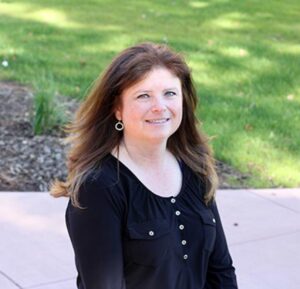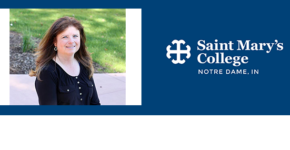 What is missing to foster the joy of writing in teens?
What is missing to foster the joy of writing in teens?
Katherine Higgs-Coulthard, assistant professor in the department of education at Saint Mary’s College, examines this question through an out-of-school experience.
Dr. Katherine Higgs-Coulthard is an Assistant Professor in the Education Department at Saint Mary’s College, Notre Dame and a teacher consultant for the Hoosier Writing Project, an affiliate of the National Writing Project. Prior to completing her doctorate from Northeastern University in Boston, she served as an instructor and Director of Clinical Field at Saint Mary’s and an elementary teacher for South Bend Community Schools. In 2011, she founded Michiana Writers’ Center which supports young writers through collaborative writing, partnerships with published authors, and opportunities to share their writing through community readings and publications. Working directly with young writers through Michiana Writers’ Center’s camps and workshops informs her teaching of reading and writing methods courses for undergraduate teacher candidates.
Fostering Growth through Teen Writing Conferences
The focus on College and Career Readiness Standards has placed increasing pressure on students to learn to write well, yet national measures repeatedly demonstrate that the majority of students fall below proficiency on writing assessments.
Teen writing conferences offer something research shows is necessary for the development of writing skills, but that is missing in many schools: a supportive and motivating writing environment. Although high school writing teachers strive to create such environments, high-stakes testing has caused many school districts to focus on easily measured aspects of writing, such as sentence structure and language conventions or the draft-compose-revise process of writing. This focus comes at the cost of less measurable, but equally important factors, such as choice and motivation.
Choice and motivation are foundational elements of effective teen writing conferences. More than a passive opportunity to hear authors speak or get books autographed, conferences are immersive. Teens write alongside published authors, collaborate and network with fellow teen writers, and deepen their understandings of writers’ craft by attending workshops that they deem relevant to their own growth.
In our attempts to create a writing conference for teens, we faced skepticism; with so many demands on their time, why would high school students choose to spend an entire day writing? US Poet Laureate, Richard Wilbur, illustrated it best when he wrote that his daughter’s writing was
“a commotionn of typewriter-keys
Like a chain hauled over a gunwale.
Young as she is, the stuff
Of her life is a great cargo, and some of it heavy”
Life is heavy. Writing conferences provide opportunities for teens to share their cargo with others who can relate to its heft and the support of mentors to guide the ship.
